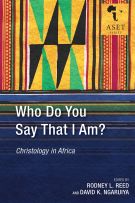| ISBN: | 9781907713163 |
|---|---|
| Imprint: | Langham Academic |
| Format: | Paperback |
| Dimensions (mm): | 229 x 152 x 20 |
| Publication Date: | 14/05/2013 |
| Pages: | 384 |
| Series: | Studies in Theology |
| Language: | English |

Foundations for African Theological Ethics
Having taught on ethics in Africa for almost a decade, James Nkansah-Obrempong presents a work that goes some way to addressing the dearth of materials on ethics that combine African social, religious, cultural and moral values with biblical and theological values. Integrating these from African, Western and biblical contexts Nkansah demonstrates how important they are for dealing with contemporary moral and social issues facing the church in Africa and African societies. The book develops a theoretical, biblical and theological foundation for Theological Ethics and uses this to address the broader issues that affect the socio-political and economic life of African people and the church.
Endorsements
Foundations for African Theological Ethics offers an accessible and thoughtful guide to thinking about Ethics in Africa. I can't imagine a more timely topic and James Nkansah Obrempong is just the person to write it. This is an ideal text for theological students, pastors, and especially for lay Christians who wrestle with God's calling in contemporary Africa. Readers will be impressed both by the range of topics covered, from ecology and economics, to work and poverty, and by the clear and readable presentation of the method and biblical foundation for thinking and acting ethically.
William A. Dyrness
Dean Emeritus and Professor of Theology and Culture,
Fuller Theological Seminary
Samuel M. Ngewa
Professor of New Testament,
Africa International University, Kenya
This book is a masterpiece in current Africa theological ethical discourse. It is well researched, thought through, systematically organized and beautifully written. As I read this book through, I found it refreshing, informative, creative, innovative and yet critical of the products of theological ethics in Africa. The author synthesized and systematized his theological ethical reflection by drawing a lot from three very important traditions and sources, namely, African, Western and Biblical. The author demonstrated vast knowledge of these three great traditions. I recommend this book to university and theological students, pastors, and all those who are interested in theological ethics discourse in Africa.
Yusufu Turaki, Ph.D
Professor of Theology and Social Ethics
Director of the Centre for the Study of Religion, Church and Society,
Jos ECWA Theological Seminary
Table of Contents
- Introduction
- Defining some key Terms
- PART 1: FOUNDATIONS FOR AFRICAN THEOLOGICAL ETHICS
- Chapter 1
- The Anthropological, Social, and Religious Foundations of African Ethics and Morality
- Introduction
- The nature of African morality and ethics
- African moral values as bases for character development
- How character is developed
- The significance and implications of African ethical and moral values for Christian ethical reflection
- Conclusion
- Chapter 2
- Foundations of Western Morality/Ethics
- Introduction
- Religious and philosophical traditions and western morality
- The legacy of Protestantism and enlightenment
- The nature of western ethical and moral values
- The influence of philosophical thought on western ethical theories
- Deontological or non-consequential approaches to morality
- Teleological or consequential approaches to morality
- Utilitarian theories of moral reasoning
- Character and virtue ethical theories/approaches
- The relationship between the foundations of African and western ethics
- Significance and implications of the findings for Christian ethical reflection in Africa
- Conclusion
- Chapter 3
- Human Nature and the Moral Life
- Introduction
- African views of human nature and its impact on morality
- Western views of human nature: the idealist and humanistic views of human nature and their impact on morality.
- The Biblical views of human nature
- Human beings possess corrupt and sinful nature
- The implications of biblical view of humanity for morality
- The corruption of sin in the “inward being” makes the moral life impossible
- The indwelling sin in the human body makes the moral life impossible
- Conclusion
- Chapter 4
- Foundations for Biblical and Theological Ethics: Old Testament
- Introduction
- The foundations of biblical and theological ethics
- The nature and character of Old Testament ethics and morality
- Biblical ethics was grounded on the authority of God’s laws/word
- not in human reason
- The social nature of Old Testament ethics/morality
- The relational nature of Old Testament moral laws and ethics
- The eschatological nature of Old Testament ethics
- Conclusion
- Chapter 5
- The Nature and Character of New Testament Ethics and Morality
- Introduction
- The nature and character of New Testament ethics
- Theological themes that form the foundation for Jesus’ ethics
- Theological themes that shaped Paul’s Ethics
- The indicative and imperative relations to eschatology and the Spirit
- The community of God as a moral community
- Nurturing and cultivating virtues as the critical component of New Testament ethics
- Character transformation as goal for biblical ethics
- Conclusion
- Chapter 6
- Integrating African, Western, and Biblical Ethical Norms/Values for African Theological and Social Ethics
- Introduction
- Methodological implications of the indicative and imperative for
- African theological social ethics/morality
- Triune God: Model source and power for the Christian’s moral life
- The Spirit as Power for the Ethical Life
- Indicative and imperative: Having a Proper Balance
- The indicative and imperative framework: Hermeneutical implications for morality and ethics
- Character as the moral engine for both African, western and
- biblical ethics
- Theological Ethics: African, Western and Biblical Principles
- and Values
- Conclusion
- PART 2: CONTEMPORARY SOCIAL AND ETHICAL ISSUES
- Chapter 7
- Politics and Governance
- Introduction
- Defining politics and governance
- Understanding politics and governance in contemporary African societies
- The African colonial legacy: its cultural, social, and moral values that shaped African political morality and governance
- African legacy: the religious and cultural values that shaped the African’s perception of power
- The moral roles, character, and responsibility of leaders/kings in African societies
- The moral role and responsibility of kings/governments in the Bible
- Governance as stewardship, empowerment and partnership with God
- Conclusion
- Chapter 8
- Economics and Poverty
- Introduction
- Modern economic systems and its values
- God the Economist
- God is the source of all economic resources
- Jesus and economics
- Defining poverty
- Causes of poverty
- Dealing with poverty in contemporary western and African societies
- The Biblical mandate to care for the poor
- Biblical models for just economic relationships, poverty alleviation, and economic empowerment
- Responding to economic injustice and poverty in Africa
- Conclusion
- Chapter 9
- Work and Unemployment
- Introduction
- Defining work
- Some contemporary misconceptions about work
- Work is important
- God: the moral and theological foundation for human
- engagement in work
- The tediousness and ambiguity of work
- The value and dignity of work
- The rights and responsibilities of employers
- Work creation is our human responsibility as co-creators with God
- Conclusion
- Chapter 10
- Righteousness, Justice, and Morality
- Introduction
- African understanding of righteousness and justice
- Modern Western definitions and understandings of righteousness and justice
- Biblical understanding of righteousness and justice
- Righteousness in the New Testament
- Biblical understanding of justice
- The mandate to reflect God’s character in our behavior in society
- God demands righteousness and justice from all human beings especially leaders
- The theological and biblical notions of righteousness and justice: implications for Christian social moral vision
- Conclusion
- Chapter 11
- Ethnicity and Reconciliation
- Introduction
- Defining ethnicity
- The reality of ethnicity in Africa
- Ethnic diversity: A blessing or a curse?
- Theological and biblical foundation for ethnic diversity
- The Cross is God’s remedy for ethnocentrism
- Triune God as model for equality and respect for humanity
- Reconciliation and forgiveness: God’s solution to ethnocentrism and exclusion
- Our mandate: Humanity is given the ministry of reconciliation and forgiveness
- Some practical suggestions for dealing with ethnocentrism
- Dealing with ethnicity and ethnocentrism in Africa: some biblical values and principles
- Conclusion
- Chapter 12
- Ecology and Care of Creation
- Introduction
- Defining ecology and environment
- The moral dilemma: the ecological crisis in Africa
- African cultural, religious, and moral values shaped their ethics for creation care
- Western ethical approaches to creation care
- Creation care: theological and biblical grounds
- Humans and creation restored and reconciled
- Creation care: Some practical principles
- Conclusion
- Chapter 13
- Culture and Family
- Introduction
- Culture and its role in creating values and shaping morality
- Evaluating our cultural values
- The place and role of family in African cultures
- African family values under attack by western ideological, cultural, and moral values
- Family as the primary place for building strong relationships and moral values
- Biblical foundations for family and its role in shaping the moral life
- Creating godly and responsible families for society
- Modeling the Fatherhood of God in the family
- Some practical suggestions and principles we need to apply to curb the incipient ideologies threatening family life in Africa
- Conclusion
- Chapter 14
- Biblical Law and African Legal Systems
- Introduction
- The nature of law and order: Some definitions
- Restoration and reconciliation as a goal of the African justice systems
- The African modern legal systems: Its problems
- The role, function, and purpose of the biblical law in society
- The scope and extent of biblical laws
- The administration of justice and the moral character of its officers
- Creating just and righteous legal systems
- The necessity to uphold law and order in society
- Some basic biblical principles and values we need to apply to improve our African legal systems
- Conclusion
- Bibliography






